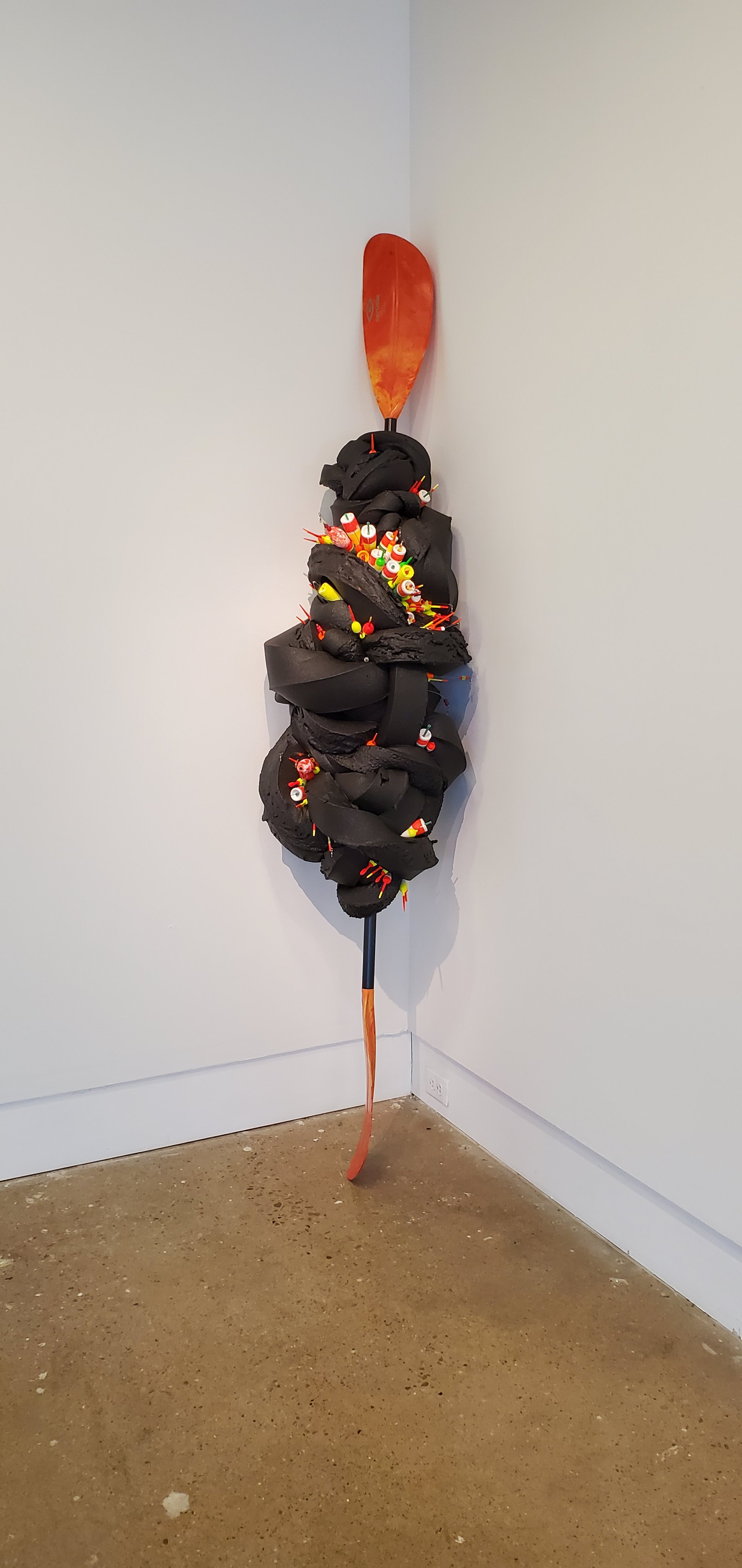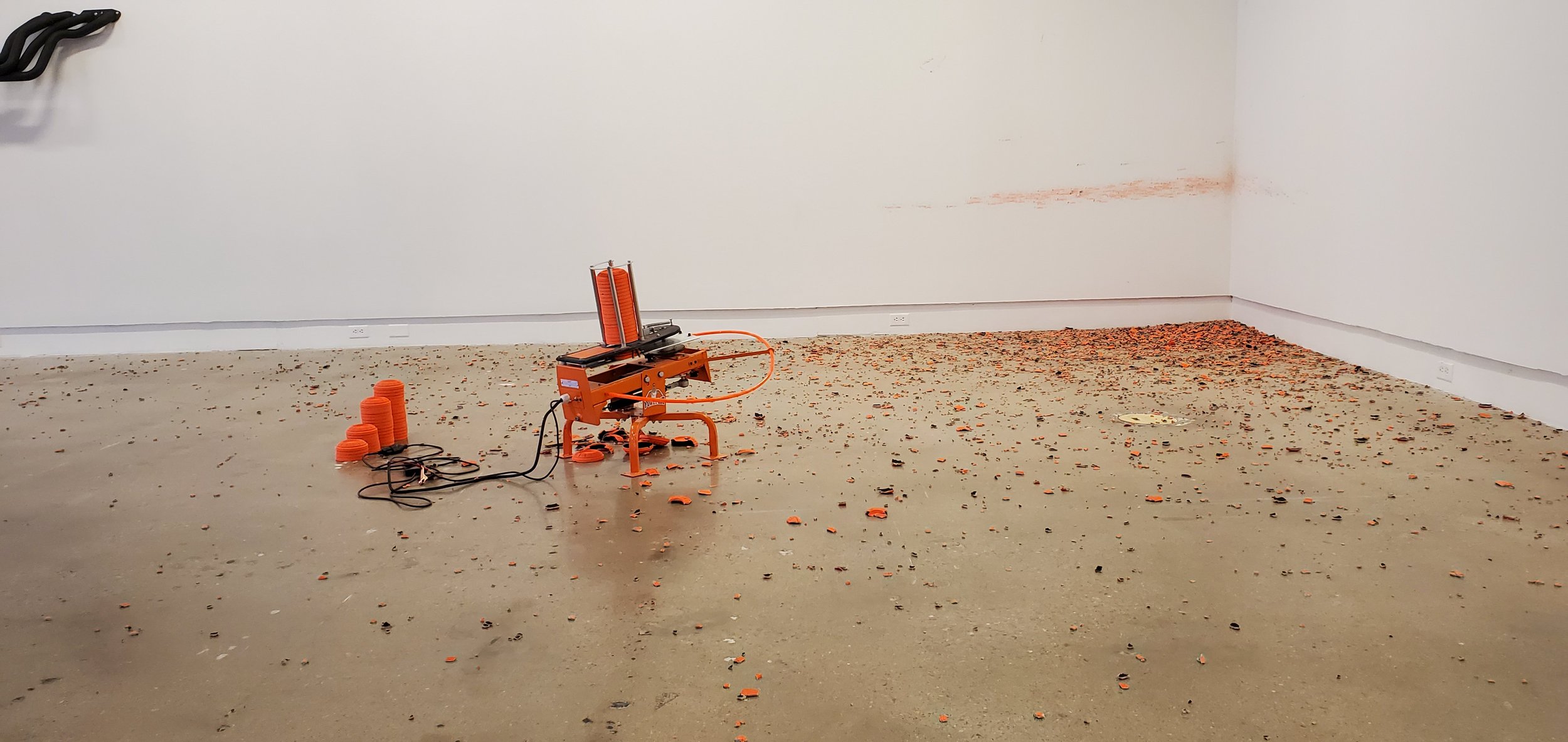Abstract Utility: Buster Graybill
September 6 – November 23, 2019
San Antonio-based artist Buster Graybill utilizes sculpture, installation, video and photography to examine and celebrate the rich cultural geography of rural America. His gaze regularly turns to mundane or overlooked objects, materials or landscapes, and he admits to harvesting memories, stories and language as creative fuel from this position. Working as a contractor before he was an artist, Graybill had a host of blue-collar jobs over the years resulting in a wide-ranging skill-set but also the socio-political chops that enable him to tread thoughtfully in this context. As such, Graybill’s work often addresses a needs-must or can-do pragmatism, where resilience meets creative solutions. This results in a studio practice that simultaneously engages with fine art concepts and everyday utility. In addition, Graybill frequently navigates formal ideas with a sense of humor and self-deprecation, especially when encountering themes related to class and gender.
For the Art Galleries at TCU, Graybill premiered R.MUTT: Renegade Modernist Utility Travel Trailer, a response to what he perceives as an escalating cultural tension, paranoia, political anxiety, and cultural obsession with “Dooms Day Prepping” for “End of the World” situations. This postmodern covered wagon is a 20-foot, extreme off-road camper trailer with a rugged aluminum diamond plate armored shell and 35” off-road tires. Part Dooms-Day-Prepper and part Modernist sculpture, the R.MUTT: Renegade Modernist Utility Travel Trailer is a Swiss Army knife of both form and function. Features include: sleeping quarters for 3-4 people, a slide-out field kitchen, water collection and filtration system, books on survival, bushcraft, homesteading and Postmodern art; a solar powered electrical system, and refrigerator/freezer.
Named in homage to Marcel Duchamp’s urinal, this urban escape vehicle is prepared for a variety of scenarios including economic and political failure, pandemics, deterioration in food production, natural catastrophes, nuclear fallout and biological warfare. It functions as a mobile art studio and base camp for nomadic, self-guided art residencies for Graybill.
Alongside the trailer, Graybill also exhibited sculptures and lawn chair strap “paintings” from his ongoing series Recreational Modernism. These works celebrate the formal nuances and conceptual potential of objects and materials often associated with outdoor leisure and hobbies, including fishing, custom cars and backyard BBQs. Graybill explores Modernist tendencies from a rural working class perspective, and as such these works challenge perceived notions of value and hierarchies imposed on objects of “high” and “low” culture. He explains: “Like a miner panning for gold, I sift through my own environment with a playful but discerning eye, finding beauty, humor, poetry and value in the sediment of everyday life.”
Read the exhibition publication here
Installation images by Lynné Bowman Cravens & Heesoo Yang











